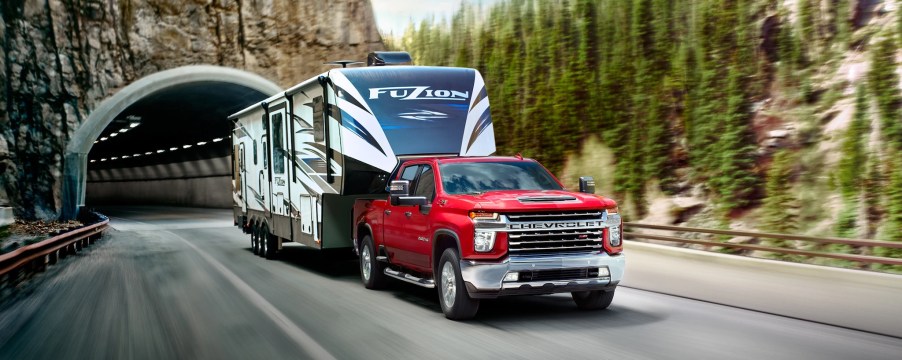
Three Tips for Better Mileage While Towing
The freedom of hitching up a trailer and heading out for the weekend is part of the American dream. Camping in a trailer is an amazing way to see the beauty of the United States. It’s a known fact that towing any real weight has a massive impact on the tow vehicle’s miles per gallon. Are there ways to increase mileage while towing?
If you are ready to hit the road with your home away from home in tow, you may also have an interest in saving some money for future adventures. If you are a seasoned hauler, you know what the damage is and want to make sure you aren’t missing some secret to better hauling MPGs.
Is better mileage attainable?
So, here’s the deal. If you tow a camper, horse trailer, hobby trailer loaded up with dirtbikes or ORVs, or really any type of trailer that bears a heavy load, you already know that getting great mpg is a pipe dream.
But, every dollar saved on fuel is a dollar spent on something more fun. With these three tips for better mileage while towing, hopefully, you will see an improvement in the mileage of your towing vehicle.
When you’re in it for the long haul, you know every mile counts. These helpful strategies should help shave the MPGs down mile after mile as you roll down the highway to your next destination.
1. Mindful Driving
Pay attention to the way you drive while towing with your vehicle. It will pay off to heed your speed and try little changes in driving strategy. Coasting down an incline, for instance, can increase your mpg averages.
Many seasoned haulers agree that maintaining a lower speed is a game-changer. It also helps to keep a nice and easy, consistent pace. That means the fewer stops, the better. Avoiding areas with a high volume of traffic lights or stop signs is key to increasing those miles per gallon.
2. Consider your tow vehicle and what you’re pulling with it
First things first. Check the specs and be sure that your tow vehicle and your trailer are absolutely compatible. Take into account the loaded weight of both the hauling vehicle and the trailer.
Also, choose the right vehicle for towing the load. For heavier trailers, be sure to tow with a vehicle with enough power and adaptability to take on the challenge.
There are many options –– from the compact SUV to a dually designed for hauling a fifth-wheel rig. A diesel engine may help cut down on fuel costs if you pull a trailer often. But a big rig like that isn’t practical for everyone. It all depends on what you want to tow, how far, and how often.
If you can lighten your load, do it. It’s basic physical science that the heavier an object is, the more energy it takes to accelerate it. By choosing your hauler and your trailer wisely and keeping the tow weight down, you are making moves to improve your gas mileage while towing.
3. Maintenance is important
Of course, maintenance is an important part of driving. Even more so if you are trying to squeeze as many miles out of your tank while towing. By regularly servicing both the tow vehicle and the trailer as needed, you reduce mileage. When your hauler is operating at it’s best, it tows more efficiently.
Watch your tire pressure, too. Keeping the correct PSI in the tires of the entire rig can have a huge impact on whether or not you are getting the best mileage possible.
Smooth hauling
By being an aware and mindful driver, not going to fast, and staying consistent while hauling, you can reduce your mpg a little bit on your excursion.
Choosing the right rig as well as maintaining that rig are also primary factors in whether or not you are trekking efficiently to your adventures. Every dollar counts and if you follow these three tips, you might be able to save a few by getting better mileage while towing.



